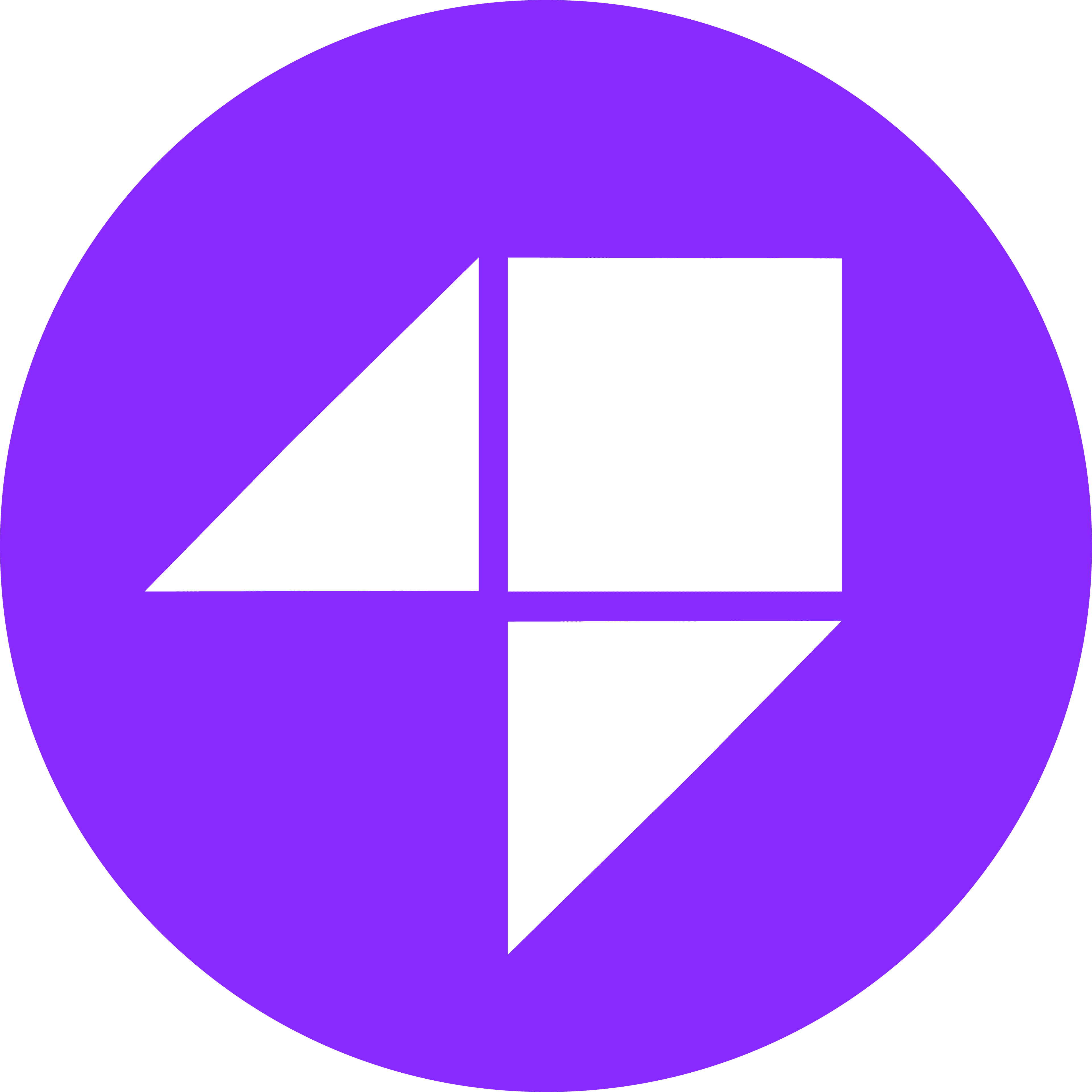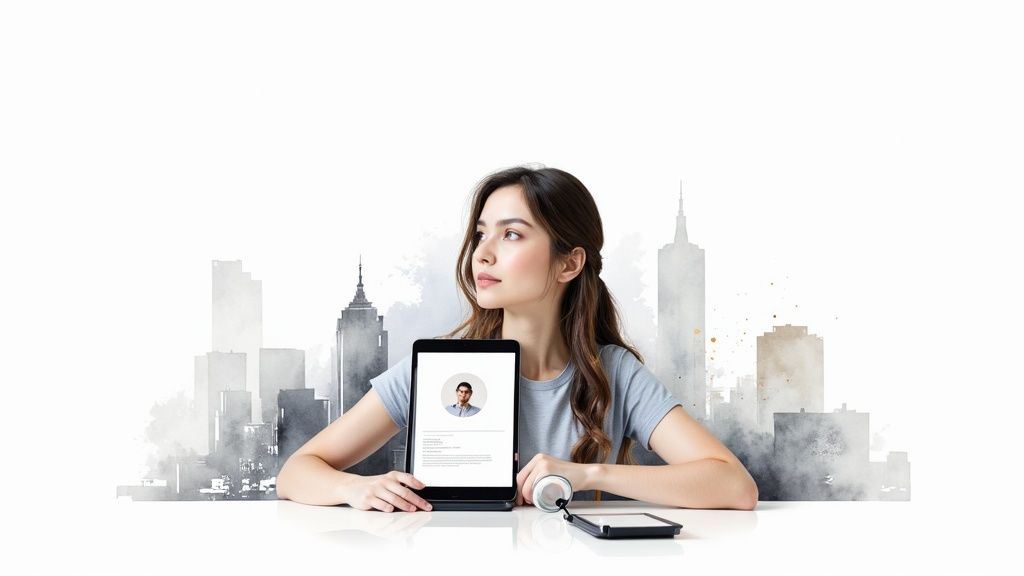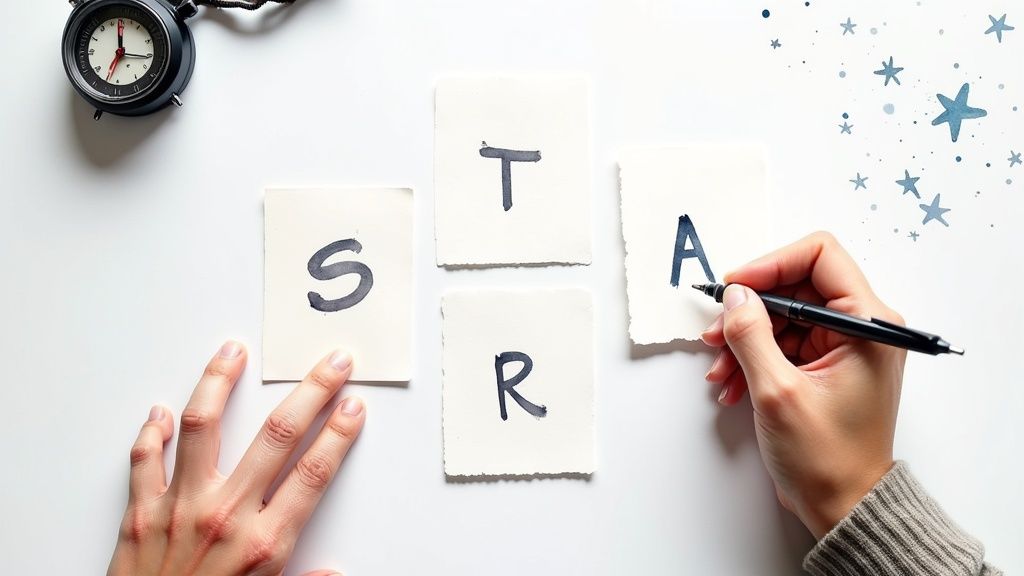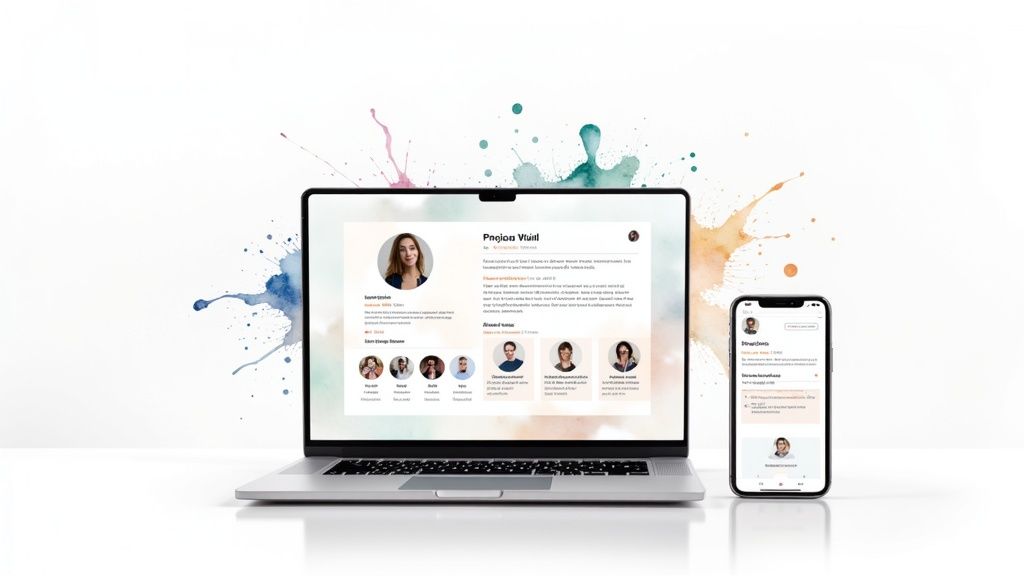10 Actionable Job Interview Preparation Tips for 2025
Master your next interview with these 10 actionable job interview preparation tips. Learn research, STAR method, and follow-up strategies to land the job.


Job interviews can feel like high-stakes exams, especially when English isn't your first language. The pressure to perfectly articulate your skills, understand cultural nuances, and make a great impression is immense. But what if you could transform that anxiety into unshakable confidence? This guide provides ten powerful job interview preparation tips designed to give you a clear, actionable framework for success. We move beyond generic advice to offer specific strategies and real-world examples, tailored to help you communicate your value effectively.
This is not just another list; it's a blueprint. Each tip is structured to be immediately useful, providing a roadmap from initial research to your final follow-up email. Whether you're a student, a seasoned professional, or new to the job market, these insights will help you master the entire interview process. For English learners, practicing these techniques with a service like TalkEasy can provide the crucial speaking practice and feedback needed to build fluency and confidence. By following these steps, you’ll walk into your next interview not just prepared, but poised to demonstrate exactly why you are the best candidate for the job.
1. Research the Company Thoroughly
One of the most crucial job interview preparation tips is to move beyond a quick glance at a company's homepage. Thorough research means digging into the company's core identity: its mission, values, recent achievements, challenges, and workplace culture. This deep dive allows you to demonstrate genuine interest and tailor your answers, showing the interviewer not just that you want a job, but that you want this specific job.

When you understand the company's direction, you can connect your skills and experiences directly to their goals. For example, if you discover a tech company just acquired an AI startup, you can mention your experience with machine learning projects. If you learn a brand is focused on sustainability, you can share how your values align with that initiative. This transforms you from a generic applicant into a thoughtful, strategic candidate who has already started thinking like part of the team.
How to Conduct Your Research
- Go Beyond the Homepage: Explore the "About Us," "Mission," and "Investor Relations" sections of their website. Read recent press releases and annual reports.
- Follow Their Digital Footprint: Check the company's LinkedIn, X (formerly Twitter), and other social media channels for recent announcements, campaigns, and overall brand voice.
- Get an Insider's View: Read employee reviews on sites like Glassdoor to understand the company culture and work environment from a different perspective.
- Stay Updated in Real-Time: Set up a Google Alert for the company's name a week or two before your interview to catch any breaking news.
This research equips you to ask insightful questions and provide relevant answers. Practicing how to discuss these findings with a tutor on a platform like TalkEasy can help you articulate your points clearly and confidently in English.
2. Practice the STAR Method & Develop Strong Answers to Common Questions
To effectively communicate your value, you need a clear structure for your answers, especially for behavioral questions like "Tell me about a time you..." The STAR method provides a simple yet powerful framework to tell compelling stories about your professional experiences. By preparing structured responses to common questions, you reduce anxiety and ensure you deliver concise, impactful answers that highlight your accomplishments.

Using this technique helps you avoid rambling and focus on what matters most: your specific contributions and the positive outcomes you generated. For example, when asked to describe a challenge, instead of a vague answer, you can detail the Situation (a project was behind schedule), the Task (you needed to get it back on track), the Action you took (reorganized the workflow and reallocated resources), and the Result (delivered on time with 15% cost savings). This method turns your experiences into proof of your capabilities.
How to Prepare Your STAR Answers
- Brainstorm Key Stories: Prepare 5-7 powerful stories from your past roles that highlight skills relevant to the job description, such as problem-solving, leadership, or collaboration.
- Structure Each Story: For each story, write down the S, T, A, and R components. Focus on your individual actions, not just the team's efforts.
- Quantify Your Results: Whenever possible, use numbers, percentages, or other metrics to make your results more concrete and impressive. For instance, "increased efficiency by 20%" is stronger than "made things more efficient."
- Practice, Don't Memorize: Rehearse telling your stories aloud so they sound natural, not robotic. One challenging question is about your weaknesses; discover how to answer that question thoughtfully in our guide to handling weaknesses in a job interview.
Practicing these stories with a tutor on TalkEasy is an excellent way to refine your delivery and receive feedback on your clarity and confidence. This preparation is a key part of our job interview preparation tips.
3. Conduct Mock Interviews and Practice
Knowing your answers is only half the battle; delivering them with confidence and clarity is what makes a lasting impression. This is where mock interviews become one of the most effective job interview preparation tips. Simulating the real interview environment allows you to practice your responses, manage your nerves, and receive constructive feedback on your performance before the stakes are high.

Engaging in practice sessions helps you identify weak spots in your answers, awkward phrasing, or nervous habits like fidgeting or using filler words. For example, you might realize you struggle to clearly explain a complex project from your resume. A mock interview gives you a low-pressure setting to refine that story, ensuring it is concise and impactful. This rehearsal transforms theory into polished practice, turning a potentially stressful event into a manageable conversation.
How to Conduct Mock Interviews
- Find the Right Partner: Ask a mentor in your industry, a trusted peer, or a career coach to act as the interviewer. Their perspective will be invaluable.
- Create Realistic Conditions: Treat the mock interview seriously. Dress in professional attire, prepare your space as you would for a video call, and ask your partner to be critical.
- Record and Review: Record the session to analyze your own performance. Pay close attention to your body language, tone of voice, and the clarity of your answers.
- Focus on Improvement: Don't try to fix everything at once. After each practice session, identify one or two specific areas to work on, such as improving your "Tell me about yourself" pitch or asking better questions.
Practicing with an English tutor on a platform like TalkEasy is an excellent way to refine your delivery and boost your speaking skills. To further build your self-assurance for the big day, you can learn more about how to improve speaking confidence with targeted exercises.
4. Master Body Language and Non-Verbal Communication
Long before you answer your first question, your body language has already started communicating. Mastering non-verbal cues like posture, eye contact, and gestures is a powerful job interview preparation tip because it builds instant rapport and reinforces your confidence. A positive first impression often hinges on how you present yourself physically, showing the interviewer you are engaged, professional, and trustworthy.

When your non-verbal signals align with your spoken words, your message becomes much more impactful. For example, sitting upright and leaning slightly forward demonstrates active listening and genuine interest. Maintaining steady eye contact conveys honesty, while using natural hand gestures to emphasize a point makes your accomplishments sound more dynamic. These subtle actions can transform you from a nervous candidate into a compelling one, leaving a lasting positive memory with the interviewer.
How to Improve Your Non-Verbal Cues
- Practice Your Posture: Sit up straight but in a relaxed manner. Avoid slouching, which can signal disinterest, or sitting too rigidly, which can suggest tension.
- Maintain Balanced Eye Contact: Aim to hold eye contact for about 60-70% of the conversation. This shows confidence without coming across as staring or aggressive.
- Use Gestures Purposefully: Keep your hands visible and use them to naturally emphasize key points in your stories. Avoid fidgeting or crossing your arms defensively.
- Mind Your Virtual Presence: For video interviews, position your camera at eye level, ensure good lighting, and minimize distracting movements.
Practicing these physical cues in a mock interview with a tutor on TalkEasy can provide valuable feedback on how you appear to others, ensuring your body language strengthens your interview performance.
5. Prepare Thoughtful Questions to Ask Interviewers
An interview is a two-way conversation, not an interrogation. Asking insightful questions at the end is one of the most powerful job interview preparation tips because it shifts your role from a passive candidate to an engaged, curious professional. It demonstrates your genuine interest, critical thinking skills, and desire to understand how you can succeed and contribute to the company's goals.
The questions you ask reveal what you value and how you think. Asking, "What does success look like for someone in this role in the first 90 days?" shows you are results-oriented. Inquiring about the team's biggest challenges demonstrates strategic thinking and a proactive mindset. This is your opportunity to gather crucial information to decide if the role, team, and company culture are the right fit for you, turning the tables to interview them back.
How to Prepare Your Questions
- Focus on Impact and Growth: Prepare questions that show you're thinking long-term. For example, ask, "How do you see this role evolving over the next two years?" or "What are the biggest challenges this team is currently facing?"
- Inquire About Culture: Show you care about fitting into the team dynamic. Ask, "How would you describe the team's working style and culture?" or even a more personal question like, "What attracted you to working for this company?"
- Listen Actively: Pay close attention during the interview. Avoid asking a question that has already been answered, as this shows you weren't listening. Be prepared to ask follow-up questions based on their responses.
- Avoid Early Logistical Questions: Save questions about salary, benefits, or vacation time for later stages, ideally after you have received an offer. Asking too early can suggest your priorities are misplaced.
Practicing these questions aloud is key to sounding natural and confident. A session with a tutor on a platform like TalkEasy can provide a safe space to refine your phrasing and delivery in English, ensuring your curiosity comes across professionally.
6. Optimize Your Online Presence and Digital Profile
In today's digital age, your interview preparation extends beyond your resume and cover letter. Recruiters and hiring managers frequently search for candidates online to get a more complete picture of who you are. Optimizing your digital profile ensures that what they find is professional, consistent, and reinforces the narrative you present in your interview, making it a critical step in your job interview preparation tips.
A strong online presence acts as a living portfolio that showcases your skills and passion for your industry. For a designer, a polished Behance profile with case studies can speak volumes. For a software developer, a well-maintained GitHub repository provides tangible proof of coding abilities. This proactive curation allows you to control the narrative, build credibility, and demonstrate a level of professionalism that sets you apart from other applicants before you even step into the interview room.
How to Enhance Your Digital Footprint
- Audit Your Profiles: Google yourself to see what appears. Ensure your LinkedIn, portfolio, and any public social media accounts present a consistent, professional image.
- Refine Your LinkedIn: Use a high-quality headshot and write a compelling headline and summary that includes keywords for your target role. Keep your experience and accomplishments updated.
- Showcase Your Work: Create a personal website or portfolio if relevant to your field. This is a space to display projects, case studies, or thought leadership articles.
- Clean Up Your Social Media: Review your privacy settings on personal accounts like Facebook and Instagram. Remove any old or unprofessional content that could be misconstrued.
Polishing your professional summary and project descriptions in English is key. You can practice articulating these points with a tutor on TalkEasy to ensure they are clear, impactful, and ready for an interviewer's review.
7. Develop a Strong Closing Statement and Follow-Up Strategy
Your job interview doesn't end when you stop answering questions. A powerful closing statement and a thoughtful follow-up strategy are essential job interview preparation tips that leave a lasting, positive impression. This final phase is your opportunity to reiterate your enthusiasm, confirm your suitability for the role, and demonstrate professionalism, ensuring you remain a top candidate in the interviewer's mind.
A well-crafted closing statement summarizes your fit and excitement. For instance, you could say, "I'm genuinely excited about this opportunity to contribute my marketing expertise to your growing team. Based on our conversation, I feel confident I can make an immediate impact." Similarly, a personalized thank-you email sent within 24 hours reinforces your interest and references specific points from your discussion, showing you were actively listening and engaged.
How to Implement Your Strategy
- Prepare a Conversational Closing: Draft a short, natural-sounding closing statement that summarizes your interest and key qualifications.
- Send a Timely Thank-You Note: Send a personalized thank-you email within 24 hours of the interview. Keep it concise, professional, and error-free.
- Personalize Your Message: In your thank-you note, reference a specific topic you discussed, such as, "I especially enjoyed our conversation about your upcoming sustainability initiative."
- Follow Up Politely: If you haven't heard back by the stated deadline, it is appropriate to send one polite, brief follow-up email to inquire about the status of the hiring process.
Mastering a confident closing and professional follow-up can set you apart. Practicing these scenarios with an English tutor on a platform like TalkEasy can help you refine your wording and deliver your message with poise.
8. Understand and Practice Industry-Specific Competencies
Beyond general interview skills, one of the most impactful job interview preparation tips is to demonstrate fluency in the specific language and tools of your target industry. This means knowing the technical skills, key terminology, and current trends that define your field. Proving you understand these competencies shows the interviewer you can integrate seamlessly into the team and start contributing from day one.
Demonstrating this knowledge proves you are a serious professional who is actively engaged in your field. For example, a software developer who can discuss the company’s tech stack (like React or Python) is more impressive than one who speaks in generalities. Likewise, a marketing professional familiar with platforms like HubSpot or Salesforce shows they are ready to use the tools of the trade. This level of preparation signals that you are not just looking for any job, but are invested in building a career in this specific sector.
How to Build Your Industry Competence
- Analyze the Job Description: Carefully review the posting for required technical skills, software, and industry-specific keywords. These are your primary study points.
- Learn the Lingo: Every industry has its own acronyms and terminology. Make a list of common terms and practice using them correctly in sentences.
- Stay Informed: Follow key industry publications, blogs, and thought leaders on LinkedIn to stay updated on the latest news, challenges, and innovations.
- Get Hands-On Experience: If a specific tool is mentioned (like a CRM or a coding language), find online courses or free trials to gain practical familiarity with it.
Discussing these competencies confidently is key. You can practice articulating your technical knowledge with a tutor on a platform like TalkEasy, ensuring you can explain complex industry concepts clearly and professionally in English.
9. Create a Structured Interview Day Preparation Plan
Failing to plan for the day of the interview itself can undermine all your other preparation. A structured interview day plan covers logistics, attire, and mental readiness, ensuring you arrive calm, professional, and focused. This detailed approach minimizes last-minute stress, allowing you to dedicate all your mental energy to performing your best when it matters most.
When you meticulously plan your travel, outfit, and pre-interview routine, you eliminate variables that could cause anxiety. For instance, knowing your route and leaving early prevents a traffic jam from making you late and flustered. Having your documents organized and your outfit chosen the night before creates a smooth, confident start to your day. This level of organization signals to the interviewer that you are a reliable, detail-oriented professional.
How to Structure Your Interview Day
- Plan Your Logistics: The day before, check the weather and traffic reports. Plan your route, including a backup option, and aim to arrive in the vicinity 20-30 minutes early. This gives you time to find parking, use the restroom, and compose yourself.
- Prepare Your Attire and Documents: Select and try on your full interview outfit the night before. Gather multiple copies of your resume, your portfolio, a list of references, and a notepad with a pen.
- Prioritize Physical and Mental Wellness: Get 7-9 hours of sleep. Eat a light, healthy meal before you go, stay hydrated, and avoid excessive caffeine. Just before entering, practice a few deep breathing exercises or power poses to boost your confidence.
- Final Checks: Ensure your phone is fully charged and set to silent. Double-check the exact spelling of your interviewer's name and their title.
A well-executed plan is one of the most effective job interview preparation tips for managing nerves. You can practice discussing your readiness and professionalism with a tutor on TalkEasy to articulate these strengths confidently.
10. Manage Nervousness and Interview Anxiety
Even the most prepared candidate can be undermined by interview anxiety. A crucial part of your job interview preparation tips is learning to manage this stress. Instead of letting nerves sabotage your performance, you can use specific techniques to channel that energy into focus and confidence. This ensures your hard work and qualifications shine through without being clouded by a shaky voice or a racing mind.
Managing anxiety is not about eliminating it entirely; a little nervousness shows you care about the opportunity. The goal is to keep it from taking over. By reframing anxiety as excitement, you transform a potential weakness into a source of energy. For example, a candidate using a power pose for two minutes before logging into a video call can boost their confidence, while another might practice deep breathing in their car to calm their heart rate. These small actions maintain your composure and clarity under pressure.
How to Manage Interview Anxiety
- Practice Box Breathing: Before the interview, inhale for a count of four, hold for four, exhale for four, and hold for four. Repeat this cycle several times to calm your nervous system.
- Visualize Success: Spend five minutes imagining the interview going perfectly. Picture yourself confidently answering questions and building a strong rapport with the interviewer.
- Use Positive Affirmations: Repeat phrases like, "I am prepared and capable of doing great work" to reinforce a positive mindset and combat self-doubt.
- Reframe Your Nerves: Remind yourself that the physical symptoms of nervousness are very similar to excitement. Tell yourself, "I'm not nervous, I'm excited for this opportunity."
- Exercise Lightly: A short walk or some stretching on the day of the interview can release endorphins, which are natural mood elevators and stress relievers.
These techniques are similar to those used for public speaking and can significantly boost your performance. You can discover more strategies for overcoming communication-related fear on talk-easy.com.
10-Point Interview Preparation Comparison
| Preparation Strategy | Implementation Complexity 🔄 | Resource Requirements ⚡ | Expected Outcomes 📊 | Ideal Use Cases 💡 | Key Advantages ⭐ |
|---|---|---|---|---|---|
| Research the Company Thoroughly | Medium — targeted research across sources | Medium — time, web sources, alerts | Tailored responses; stronger cultural fit | Any interview; especially strategy- or client-facing roles | Demonstrates genuine interest and informed questions |
| Practice the STAR Method & Develop Strong Answers | Medium — craft and rehearse stories | Low–Medium — time to write and practice | Structured, measurable answers; clearer storytelling | Behavioral or competency-based interviews | Organized responses; consistent messaging |
| Conduct Mock Interviews and Practice | Medium–High — coordinate sessions and feedback | Medium — peers, mentors, recording tools, coaches | Improved delivery; reduced anxiety; identified gaps | Final-round or high-stakes interviews | Realistic simulation and actionable feedback |
| Master Body Language and Non‑Verbal Communication | Low–Medium — awareness and rehearsal | Low — self-practice, video feedback | Better rapport; stronger first impressions | In-person and video interviews | Enhances perceived confidence and credibility |
| Prepare Thoughtful Questions to Ask Interviewers | Low — prepare and tailor 5–7 questions | Low — research and note-taking | Deeper dialogue; better fit assessment | Early-stage and final interviews | Shows curiosity, critical thinking, and engagement |
| Optimize Your Online Presence and Digital Profile | Medium — update multiple platforms for consistency | Medium–High — time, portfolio/tools, possible costs | Consistent narrative; higher discoverability | Roles screened online or requiring portfolios | Reinforces credibility and provides social proof |
| Develop a Strong Closing Statement & Follow‑Up Strategy | Low — write and rehearse concise closings | Low — email templates, brief personalization | Positive final impression; better callback rates | Any interview; when you want to reiterate fit | Reinforces qualifications and professionalism |
| Understand & Practice Industry‑Specific Competencies | High — technical study and hands-on practice | High — courses, tools, certifications | Demonstrable readiness; deeper technical credibility | Technical or specialized industry roles | Differentiates candidate; enables technical dialogue |
| Create a Structured Interview Day Preparation Plan | Low–Medium — checklists and logistics | Low — planning time, materials checklist | Reduced stress; punctuality; focused mindset | In-person interviews or multi-stage interview days | Prevents last-minute issues; improves composure |
| Manage Nervousness and Interview Anxiety | Low–Medium — learn and practice techniques | Low — breathing, mindfulness, short routines | Improved clarity and steadier performance | Candidates prone to anxiety; high-pressure interviews | Reduces physical symptoms of anxiety; improves focus |
Your Next Step: Turn Preparation into Performance
You've now explored a comprehensive blueprint for transforming your interview approach. We've moved beyond surface-level advice, breaking down ten critical pillars of effective job interview preparation tips. From conducting deep-dive company research and mastering the STAR method to refining your digital presence and preparing a powerful closing statement, each strategy is a vital piece of a larger puzzle.
The journey from a nervous candidate to a confident professional isn't about memorizing a script. It's about building a holistic system. Think of these tips not as a checklist to be completed once, but as a cycle of continuous improvement. The goal is to move from simply knowing what to do to internalizing these skills so they become second nature.
Key Takeaways for Lasting Success
True mastery comes from integration. Your compelling, data-driven answers are amplified by confident body language. Your thoughtful questions for the interviewer carry more weight when they are built upon your thorough company research. Each element supports the others, creating a cohesive and powerful personal brand presentation.
The most important takeaways from this guide are:
- Preparation is a Conversation, Not a Test: The ultimate goal is to connect with your interviewer on a professional and personal level. Your preparation should empower you to have a natural, engaging dialogue that showcases your value, not just recite pre-written answers.
- Consistency Breeds Confidence: Repetition is your greatest ally. Regularly practicing your stories, conducting mock interviews, and even rehearsing your interview-day logistics will systematically reduce anxiety and build unshakable self-assurance.
- Authenticity is Your Superpower: While frameworks like the STAR method provide structure, your unique experiences and personality are what make you memorable. Let your genuine enthusiasm and professional voice shine through.
For English learners, the final, crucial step is turning this knowledge into fluent, confident speech. Knowing the right answer is one thing; delivering it clearly and persuasively under pressure is another. This is where dedicated, consistent speaking practice becomes non-negotiable. By combining these job interview preparation tips with a robust practice routine, you equip yourself not just to survive an interview, but to excel in it. You are no longer just a candidate answering questions; you are a professional problem-solver demonstrating your future value. Walk into that room ready to connect, convince, and land the role you deserve.
Ready to perfect your delivery and build unstoppable interview confidence? TalkEasy provides affordable, AI-powered English tutoring that allows you to practice your interview answers, refine your pronunciation, and get instant feedback in a pressure-free environment. Visit TalkEasy to start your free trial and turn your preparation into a winning performance.